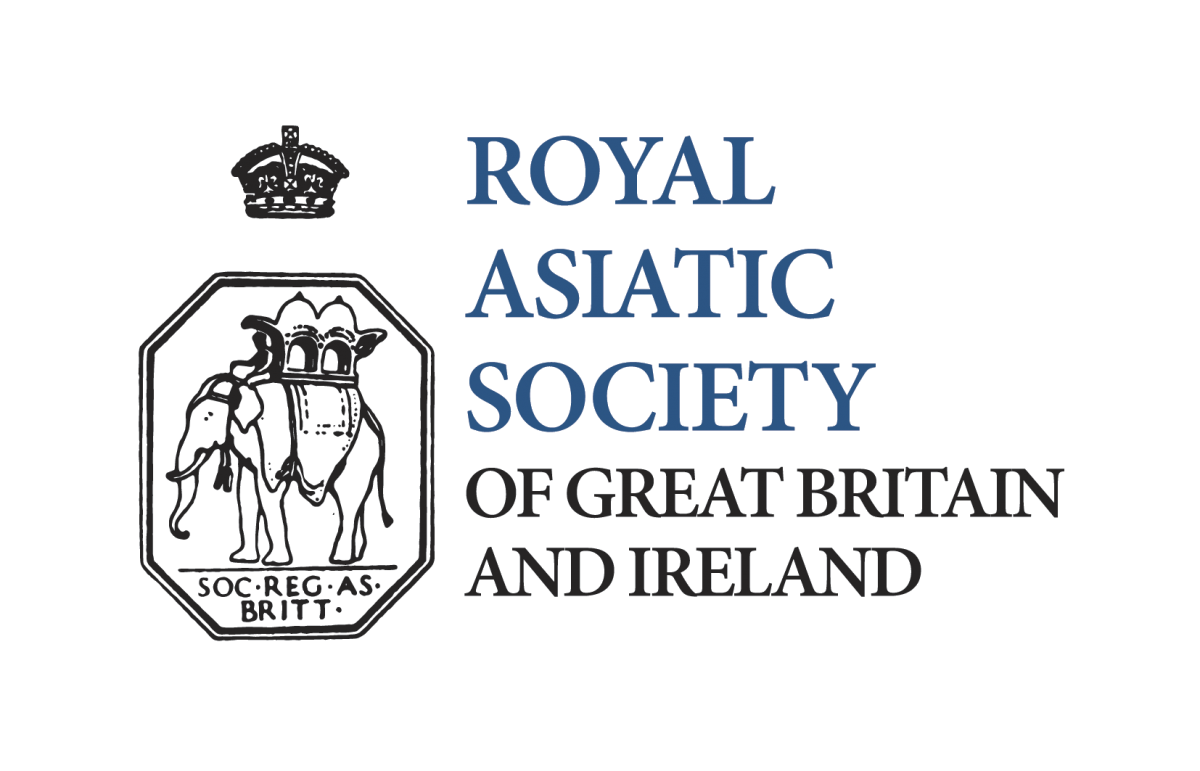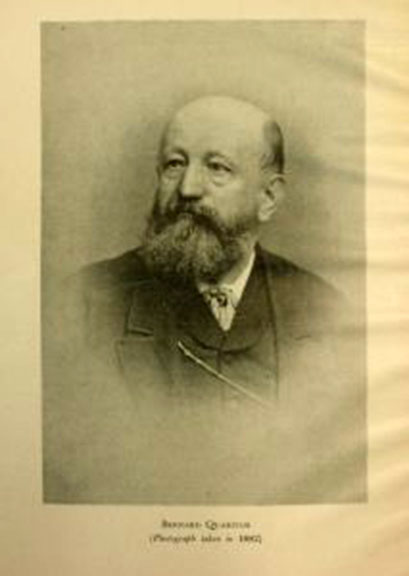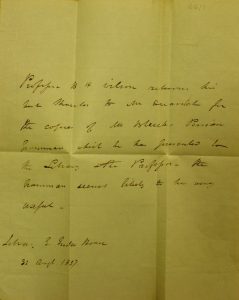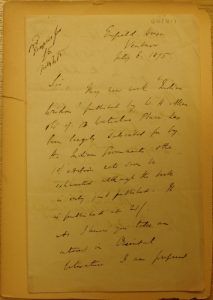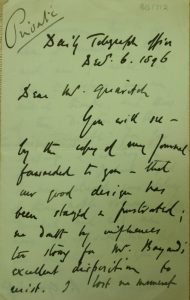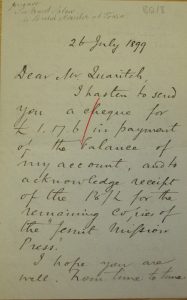Bernard Quaritch
Bernard Quaritch was born in a village outside Göttingen, Germany. After first working for booksellers in Nordhausen and Berlin, he traveled to London in 1842, carrying a letter of introduction to Henry Bohn, the leading London bookseller. Quaritch was employed by Bohn until, in 1847, he set up his own business. Quaritch built up his business with an impressive clientele including those in this archive. He became lifelong friends with Edward Fitzgerald and published his translation of The Rubáiyát of Omar Khayyám in 1859. He continued in business until his death in 1899 when the business passed to his son, Bernard Alfred Quaritch. For a more in-depth biography see Bernard Quaritch Ltd: Our History.
We have a small collection of Personal Papers of Bernard Quaritch. This consists of letters from early orientalists and literary figures, mainly concerning the obtaining or selling of oriental literature. The catalogue for these papers can be found on Archives Hub.
